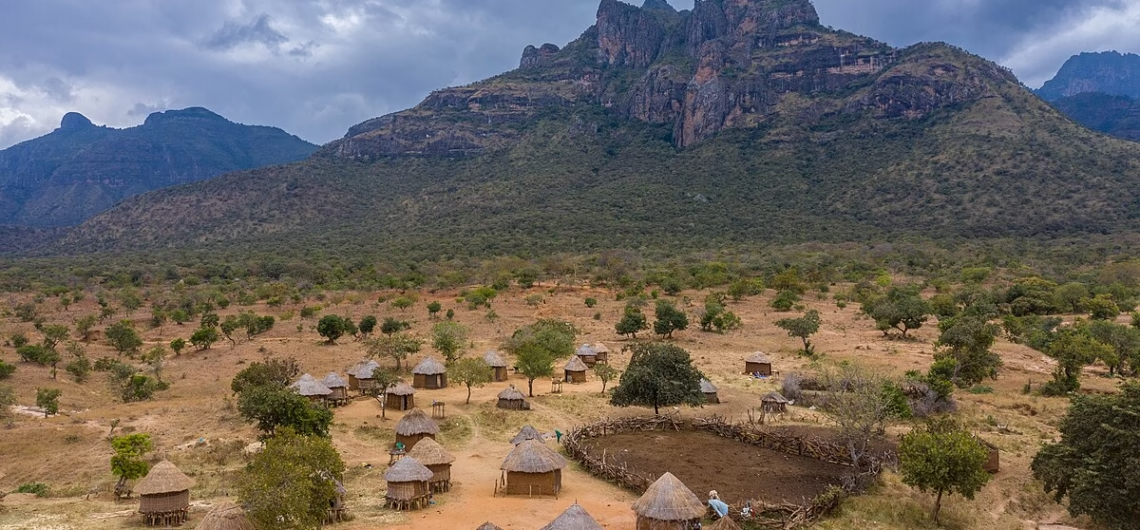Karamjong Region 2024 – 2025
Karamjong Region 2024 – 2025: The Karamoja region in northeastern Uganda has experienced remarkable transformations over the last twenty years, driven by a variety of interconnected processes such as disarmament, enhanced security, the distribution of iron sheets, the decline of pastoral-based production for numerous households, and the growth of markets. The transformations have introduced a variety of new social, economic, and environmental possibilities for the youth in the Karamoja region, amidst ongoing ecological, political, and cultural challenges. This includes a rise in commoditization and monetization, which may or may not have led to enhanced opportunities for the substantial population of young men and women in the area. This initiative has centered on engaging young individuals with insights and experiences in adapting saving strategies to enhance their living standards and promote gender access to markets and decision-making across various market dimensions. With the establishment of village savings and loan associations in the region, numerous young men and women have embarked on a journey to enhance their businesses, meet essential household needs, cover school fees for their children, and gain access to improved medical services. According to the study conducted by the Karamoja Resilience Support Unit, women are more actively involved in village savings and loan associations than men, while the majority of men utilize mobile money banking. With the majority of local communities contributing under Ugandan shilling (UGX) 2,000 each week. Records indicate that the primary obstacles to youth participation were insufficient funds to save and the perception that VSLAs were intended for those who were more affluent.
Disarmament among the Karamojongs has played a crucial role in the development of the Karamoja region over the past two decades. The Ugandan disarmament exercise from 2006 to 2011 aimed to put an end to the escalating culture of cattle raiding, which had spiraled into chaos with the introduction of automatic weapons during the era of the Late President Amin. The widespread availability of arms and a dominant gun culture fueled cycles of violence, hindering local efforts toward peace and development. The government initiated a disarmament campaign that enhanced their influence in Karamoja, paving the way for communities to foster peace and engage in development.
Disarmament has ushered in numerous advantages for the region, such as financial savings, enhanced safety for refugees, women, and children, improved environmental conditions, and a decrease in the occurrence and impact of armed conflict.Disarmament involves fostering shared understandings among the Karamojongs, establishing norms and laws that set boundaries on weapon usage for the collective good of the people of Karamoja and Uganda. The attempts to manage the weaponization of emerging technologies such as AI are disjointed. Nevertheless, the UN has a current disarmament framework that could unite these initiatives. The current international disarmament framework of treaties and United Nations forums is not being fully utilized, even though it could serve as a central hub for bringing together efforts to tackle the challenges presented by emerging technologies.
The expansion of markets in the region has led to enhanced livelihoods for the local population through the creation of new job opportunities and improved access to goods and services, fostering economic growth and development. Additionally, the emergence of tourism destinations like Kidepo Valley National Park, Karamoja cultural tours, and local handicraft industries has significantly contributed to the region’s progress, addressing various challenges related to gender issues in the area. The Karamojongs are navigating changes in their livelihoods, responding to household-level challenges while seizing emerging economic opportunities in Karamoja. This diversification into new economic activities often leads to a blending of traditional gender roles, with both men and women participating in ways that challenge established norms. This involves women diving into livestock marketing and men stepping into roles such as selling firewood and local brew.
Karamjong Region 2024 – 2025
Karamjong Region 2024 – 2025
This adaptation involves breaking through traditional gender roles by both men and women, driven by necessity and the recognition of new opportunities. Young people are embarking on exciting journeys of innovation, harnessing technology, expanding into services and catering, exploring transportation and the sale of alcohol, and diversifying within the livestock and cultivation sectors. Young people in the region are seizing the exciting new opportunities that have emerged, particularly in the thriving mobile phone market. This includes selling, repairing, and reselling phones, all of which are expanding business communication on a global scale.
In the Karamoja region, the vibrant engagement of young people in the household market has led to many families accumulating farming-related wealth and owning livestock. The distribution of ownership here reflects the traditional initiatives embraced by the Karamojong community. However, they are also faced with obstacles that require creativity and resilience, such as insufficient funds to launch new business activities, limited access to credit, scarcity of essential resources, the influence of local gender norms and expectations, and the absence of financial support to achieve educational aspirations.
In conclusion, the youth in Karamoja have embraced new ways to tackle poverty and are increasingly adopting positive measures like saving money. This growing desire to save opens up a vast landscape of opportunities for the young people in the region. The initiatives and guidelines introduced in the region have significantly paved the way for future growth across multiple dimensions. There should be an emphasis on cultivating leadership, enhancing financial management, and developing business skills for individuals of all genders in the area.

